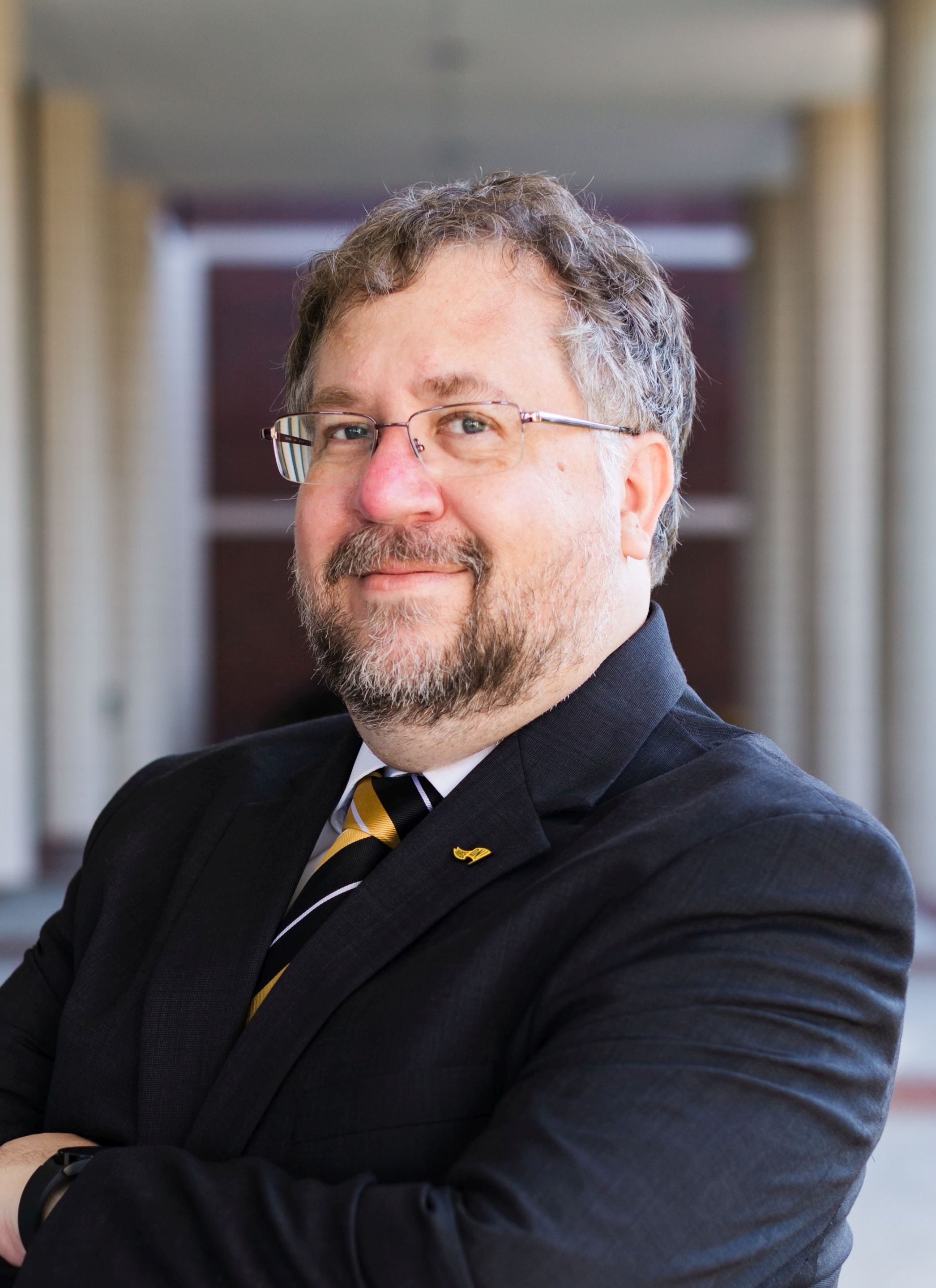Professor, Department of History, and Associate Dean, College of Arts and Humanities, University of Central Florida
After his M.A. degree at Catholic University, Peter went on to a second master’s at Durham University in the United Kingdom, reinforcing his commitment to late-medieval and early-modern social, economic, and legal history, particularly in northeastern England. After finishing his doctorate at Rutgers, and a two-year visiting position at Kenyon College, he joined the University of Central Florida, where, he reflects, “Twelve of my seventeen years have been in a leadership role, first directing our graduate program, then as department chair, and now as Associate Dean of Arts and Humanities. A background in medieval history and law is a good foundation for an administrative career.”
Peter’s publications include two monographs: Conflict and Compromise in the Late Medieval Countryside: Lords and Peasants in Durham, 1348 to 1400 (Routledge, 2006), and Rethinking the Great Transition: Community and Economic Growth in County Durham, 1349-1550 (Oxford University Press, 2022). His current major project centers upon occupational identity in pre-1750 England. The project uses wills and probate inventories to assess the conclusions on occupational share by economists for a more nuanced way to approach the shifting balance of agriculture, industry, trade and service, a key to understanding the Industrial Revolution.
Among reminniscences about his time in our graduate program, he is not the only alum among our current profilees to recall the physical surroundings in which the Department was situated during the 1990s (but see the feature elsewhere in this issue about our new location). He puts it diplomatically:”The department was located in the basement of Gibbons Hall: far from ideal, with many drawbacks, but that provided a unique experience.” He recollection of his mentors is warm: “My memory of the medievalist faculty was just how welcoming and supportive they were, no matter how junior or senior, though the coursework was still challenging. One example, I was one of four students taking a seminar on the Investiture Controversy with Uta-Renate Blumenthal, and the first time the class met, we were all overawed. But she quickly made us feel (somewhat) relaxed and the rest of the semester was fantastic (if tough!).”
One aspect of his training in our Department has been of particular significance for much of his research: the seminars he took with us on editing from manuscripts, both for Latin text generally and for English legal records specifically. “As an undergraduate I had double majored in Latin and History, but from these courses I learned the importance of the physical aspects of the book/roll and its creation, and this led to some findings crucial to my first book. The learn-as-you-go elements of editing helped me embrace a flexible, organic style of research and writing rather than a linear one – moving forward with what you know, circling back as you learn more, having those eureka moments for one part occurring at a different stage. Looking back, paleography and editing really shaped the process of researching and writing my dissertation and subsequent research.”
Peter’s advice for students currently in our graduate medieval programs: “It’s OK to struggle, and everyone struggles at some point, though not everyone will show it. Your fellow grad students are your natural support group; if you need help, reach out. These are some of the best years of your life, studying and researching. Embrace the opportunity to learn and explore. It’s an opportunity that won’t come again in the same way.”
How does Peter engage with students, and encourage them to see the connectivity between medieval history and any number of other subjects, especially in a time when humanities subjects are under pressure to justify themselves? “The social scientist in me loves data, but the real inspiration comes from recognizing the importance of the human story, and of a person’s (or group’s) past, and just how varied those were. TV shows, video games, and more can’t succeed without a good story, and the best have stories that are rooted in the past (real or imagined); advertising and politics appeal to the past as well. There is something deeply compelling to want to know where we come from. Thus in teaching I always try to include the story, to humanize the events and trends that make up the past, and I encourage students to find their own connections to the past and pursue them. It’s a way to engage students in the STEM fields; one of the best papers I remember was from a pharmacy student who did a paper on ancient sports medicine, and that class also had an engineering student who came alive when he realized he could look at ancient and medieval engineering. Neither changed majors, but they found their connections.”

